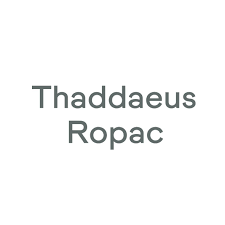UNLOCKED Member Content
Your Membership directly supports this content.
— Robert Rauschenberg, 1986
Between 1984 and 1991 Robert Rauschenberg undertook a monumental cultural exchange programme to foster mutual understanding between different cultures through artistic expression. The Rauschenberg Overseas Culture Interchange (ROCI), pronounced ‘Rocky’ after the artist’s pet turtle, foregrounds his conviction in art as a force for positive social change, along with the role of travel as a key catalyst for his characteristically experimental approach to materials and techniques.
Spanning the entirety of the seven years of ROCI’s intense creative production, the exhibition at Thaddaeus Ropac London encompasses canvases, sculptures, cardboard works, neon light, photogravures and textiles, as well as an example of the artist’s earliest metal paintings. Presenting works directly from the Robert Rauschenberg Foundation, this is the first gallery survey dedicated to ROCI since the conclusion of the project in 1991. The ROCI works, many of which are also shown publicly for the first time since the project ended, are contextualised with archival materials. A selection of the artist’s black-and-white photographs, taken as source material during his travels and used for the silkscreen images in the ROCI works, are also included. Together, these elements offer an unprecedented overview of one of the most ambitious and wide-reaching artistic interchanges of the late-20th century.
For more information, visit Thaddaeus Ropac London



